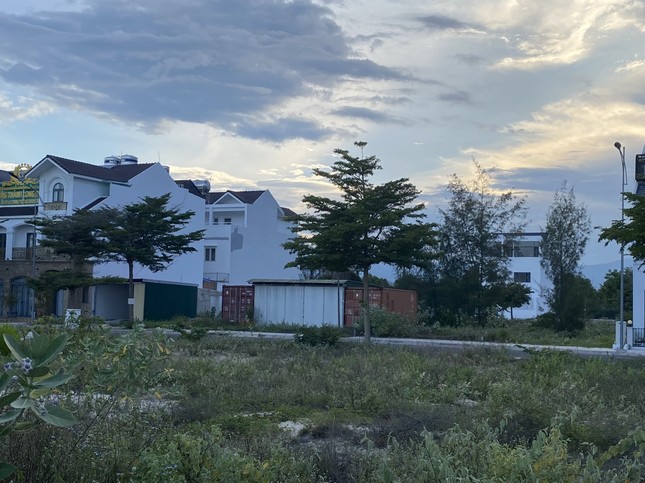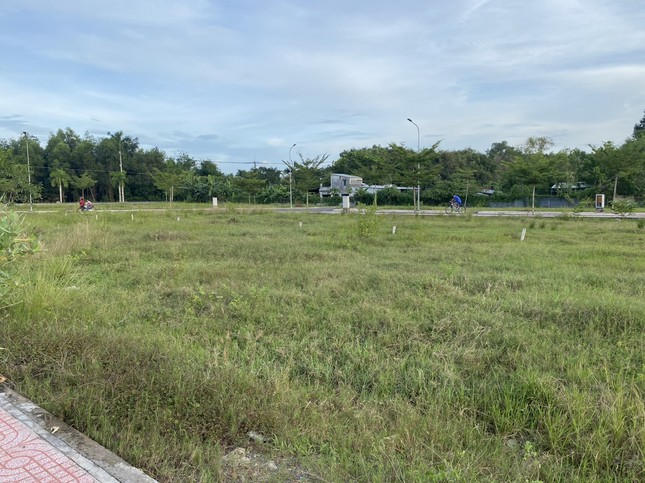A significant financial burden:
On August 1st, the Ho Chi Minh City Real Estate Association (HoREA) sent a document to the People’s Committee of Ho Chi Minh City and the Department of Natural Resources and Environment, suggesting that they put themselves in the citizens’ shoes to understand why the new land price framework should not be issued at this time.
According to HoREA, Article 257, Clause 1 of the 2024 Land Law stipulates that the provincial People’s Committee will issue a land price framework following the 2024 Land Law. This framework will be effective until December 31, 2025. If necessary, the provincial People’s Committee can adjust the land prices to match the local reality.
Additionally, Article 114, Clause 1 of the 2013 Land Law states that during the implementation of the land price framework, if there are market fluctuations, the provincial People’s Committee shall adjust the land prices accordingly, along with the provisions of Decree 44/2014/ND-CP and Decree 45/2014/ND-CP.

Let’s put ourselves in the citizens’ shoes to understand why the new land price framework should not be issued from August 1st.
Therefore, HoREA proposes that the drafting agency of the land price framework should consider the citizens’ perspective and understand why it is not advisable to issue the new framework from August 1st. Instead, they should focus on constructing the initial framework, which will be applied from January 1, 2026, as per the 2024 Land Law. This decision should be based on researching cases of citizens who need to be granted land use rights certificates for their houses and attached assets.
HoREA provides an example of Mr. A, who applied for a certificate for his long-built house on a 100-square-meter land plot adjacent to Nguyen Van Linh Street in the stable residential area of Binh Hung, Binh Chanh District.
According to the Ho Chi Minh City People’s Committee’s Decision No. 02/2020/QD-UBND, dated January 16, 2020, the land plot’s origin was agricultural land, with a price of VND 200,000/m2 (position 1), and the price of land on Nguyen Van Linh Street was VND 6.8 million/m2. If Mr. A is granted the certificate, he will only have to pay VND 660 million in land use fees.
However, if calculated based on the draft land price framework, which sets the price of agricultural land adjacent to Nguyen Van Linh Street in Binh Hung, Binh Chanh District, at VND 3.2 million/m2 (position 1), and the price of land on Nguyen Van Linh Street at VND 65 million/m2 (a 9.55-fold increase), Mr. A will have to pay VND 6.18 billion in land use fees, a significant increase.
As a result, if the draft land price framework is implemented, Mr. A’s land use fee will be 9.36 times higher than the amount payable under Decision No. 02/2020/QD-UBND.
Another case is that of Ms. B, who already has the right to use a 200-square-meter land plot adjacent to Nguyen Van Linh Street in the stable residential area of Binh Hung, Binh Chanh District. Due to financial constraints in the past, Ms. B only applied for a certificate for a 100-square-meter area of land with a built house. The remaining 100-square-meter area of concrete yard was identified as short-term agricultural land on the certificate. Now, Ms. B intends to apply for a change of land use purpose for the 100-square-meter concrete yard to residential land.
If the land use fee is calculated based on Decision No. 02/2020/QD-UBND, Ms. B will only have to pay an additional VND 660 million in land use fees. However, if calculated according to the draft land price framework, she will have to pay VND 6.18 billion, an increase of 9.36 times compared to the amount payable under Decision No. 02/2020/QD-UBND.
There is also the case of Mr. C, who applied for a land split for a 1,000-square-meter plot of agricultural land adjacent to his residential land plot. He also requested to change the land use purpose from agricultural to residential for five land plots, each with an area of 200 square meters, to distribute to his children.
The 1,000-square-meter plot of agricultural land is located adjacent to Nguyen Van Linh Street in the stable residential area of Binh Hung, Binh Chanh District. According to Decision No. 02/2020/QD-UBND, the price of this land is VND 200,000/m2 (position 1), and the price of land on Nguyen Van Linh Street is VND 6.8 million/m2. If the land split is approved, Mr. C will only have to pay VND 6.6 billion in land use fees.
However, if calculated based on the draft land price framework, Mr. C will have to pay VND 61.8 billion in land use fees, an increase of 9.36 times compared to the amount payable under Decision No. 02/2020/QD-UBND.
13,035 land plots without certificates:
HoREA suggests asking Mr. A, Ms. B, and Mr. C to choose between paying land use fees according to Decision No. 02/2020/QD-UBND or the draft land price framework. They would undoubtedly choose the former to match the financial capabilities of many individuals and households.

Ho Chi Minh City should continue to apply the current land price framework and adjustment coefficients until December 31, 2025, as stipulated in Clause 1, Article 257 of the 2024 Land Law.
“HoREA applauds the Department of Natural Resources and Environment of Ho Chi Minh City for publishing the draft land price framework, which has helped the city’s residents anticipate future land prices and attracted special attention, even shocking many with the new land prices,” said Mr. Le Hoang Chau, Chairman of HoREA.
According to HoREA’s statistics, there are currently 13,035 land plots without certificates, accounting for 0.7% of the total number of land plots in Ho Chi Minh City. In addition, there are individuals who wish to legalize their land use rights for agricultural land areas located within stable urban residential areas and attached to existing houses. Some people also intend to apply for land splits while simultaneously changing the land use purpose to residential.
Therefore, HoREA believes that issuing a decision to adjust Decision No. 02/2020/QD-UBND on the land price framework in Ho Chi Minh City, effective from August 1 to December 31, is not necessary at this time.
Instead, the Ho Chi Minh City People’s Committee should continue to apply the current land price framework and adjustment coefficients from now until December 31, 2025, as stipulated in Clause 1, Article 257 of the 2024 Land Law. This will give residents enough time to complete the procedures for granting certificates and pay land use fees at the old rates, reducing financial pressure on citizens.
In the afternoon of August 1st, a source from Tien Phong Newspaper reported that the Party Committee of the Ho Chi Minh City People’s Committee held a meeting regarding the decision to temporarily suspend the issuance of the new land price framework. Subsequently, the authorized agency will have another meeting to analyze and listen to the concerns raised by the public, along with discussing the positive and negative impacts of the new land price framework once it is officially issued and takes effect.

















